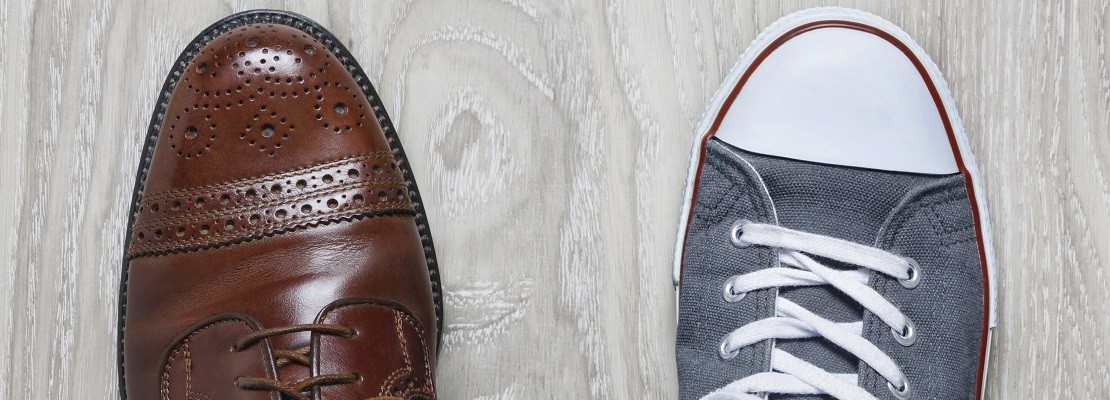Health and wellness in the legal profession is a growing concern. Megan Seto, an associate at McInnes Cooper in Halifax took to twitter on Bells Let’s Talk Day and exposed some scary truths about lawyers and mental illness:
“lawyers suffer from #depression at a rate that is 3.6x higher than those that share the same economic traits”; “while 4% of the general population suffers from anxiety – 30% of male lawyers and 20% of female lawyers report illness”; “for law students and junior lawyers, fear of stigma proves to be a powerful inhibitor in detection and recovery #BellLetsTalk #depression”; “competition in law school can create #stress, fear, #anxiety and a profound loss of self-esteem. #BellLetsTalk #depression.”; and “why care about depression & law? The illness limits a lawyer’s ability to distribute most valuable asset — talent & knowledge.”
This got me thinking about life as an articling student. I have been fairly successful managing my time as a law student, but articling is a whole other game. First to arrive, last to leave. Nothing looks better than a senior partner seeing you, a lowly articling student, scouring mountains of paper at 10pm – right? That’s the epitome of a solid work ethic, yes? For a long time that was my understanding of how an articling student gained respect at a firm. However, we are the generation of work-life balance. Often criticized for being lazier than our predecessors, we actually may have a competitive edge. We have resources to be more balanced, happy and healthy practitioners long term than any lawyers before us. The stress and anxiety of the legal profession are actually being talked about and better yet firms are starting to make sure that these issues are addressed.
So what does this mean for us? It is unlikely we will be victims of the 80-hour workweeks many of our seniors experienced in their first years. We might put in more hours outside of the office, thanks to the availability and accessibility of modern at home work. We might be at a firm that offers health workshops, or brings in speakers to discuss anything from ergonomics to the benefits of drinking more water. Other firms may provide compensation in the form of fitness passes, or provide more vacation days. In addition it is likely more and more resources will become available to us like the CBA Legal Profession Assistance Centre, offering mental health support programs, training and a 24-hour help line to lawyers.
While the stigma around mental health is still prevalent, this is something that should continued to be talked about. And should you find yourself in a position where your health and career success seem incompatible, remember as a lawyer your most valuable asset is your mental abilities.

I totally agree with everything you have said in this post. It is interesting how many people wear sleep deprivation almost like a badge of honour. In my mind, work life balance makes a better lawyer as much as it contributes to general mental health. When compared to other sectors of society, I expect that the existing legal culture (which can be ruthless and competitive at times) will present additional challenges to overcoming the stigma associated with mental health.
Great Post Jessica!
I think health and wellness in the profession is a very significant issue that is finally starting to receive the attention that it deserves. I read an article on Vice a couple weeks ago which basically covered the same issues that you have brought out.
To add to what you have stated, the Vice article brings out other statistics that are very alarming. The suicide rate among lawyers is six times that of the general population. Lawyers “booze and drug ourselves at a rate greater than twice the national average.” These statistics are worrisome and something needs to be done to counter this.
I agree that in order for this to change, there must a shift in the culture within law firms. Like you said, 80 hour workweeks should not be the norm. A strong work-life balance should be encouraged. Taking sick days should not be something that is looked down upon. There should be more resources available within firms for lawyers who are struggling with their health (like helplines or counselling services). To @germainefields point about sleep deprivation, the article even talks about how lawyers brag about sleeping at the office just so that they could bill late into the night. Until this shift occurs, I don’t think the problem will get any better.
On a side note, the Vice article aligns with a lot of what we have discussed in class so far, so it makes for an interesting quick read. Although it is US article, a lot of the same problems exist in the Canadian model.
Onkar, this is a really informative and thoughtful comment. Could you post a link to the Vice article?
Oh I thought I did but it seems like it didn’t copy over.
http://www.vice.com/en_ca/read/an-inside-look-at-the-depressed-substance-abusing-world-of-law
Thank you! I have seen that piece before. It is quite arresting, isn’t it?